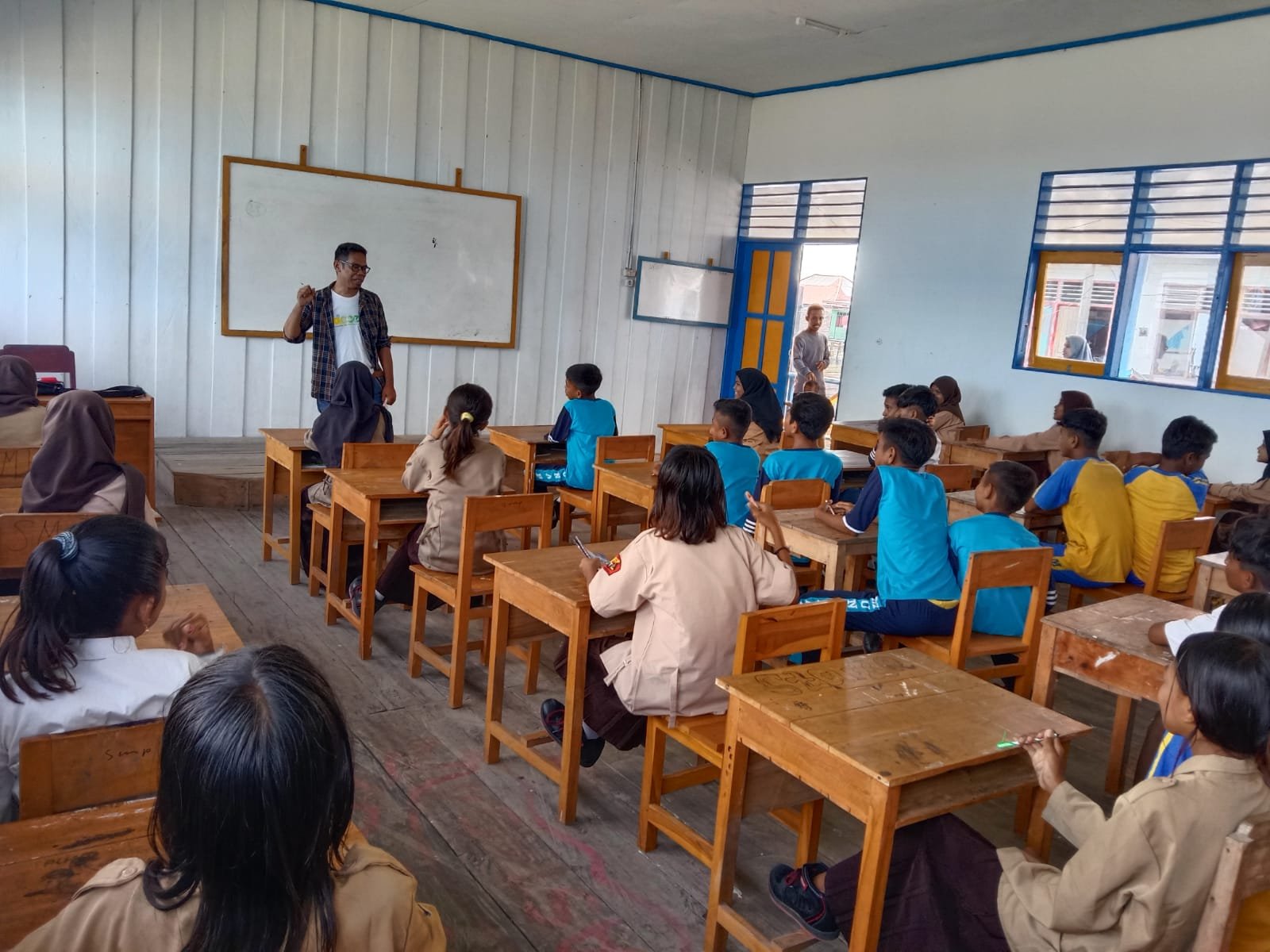
Story from the Field: How PEAP Kills the Longing
Since 30th September 2021, the village facilitators, Patriot Energi ACCESS Program or PEAP, were deployed to 23 villages in Nusa Tenggara, Southeast Sulawesi, West Sulawesi and Central Kalimantan. They have facilitated various preparation activities for constructing solar power plants, ranging from socialisation and approval to the selection and recruitment of local operators.
They also participate in multiple village activities. They help revitalise Bumdes, assist the presenters and training resource persons for the Bumdes management and accompany residents when taking care of the legality of the village-owned enterprises.
However, their passion and commitment are undeniable; the distance from their hometown makes them away from their home. "Mostly, we make video calls with family or exchange news via WA." Said Ristifah. She was deployed in Wangkolabu Village, Muna Regency, Southeast Sulawesi, almost 3,000 kilometres from her home in Jogjakarta. This becomes even stronger as we approach the end of Ramadan, a time when millions of Indonesians return to their hometowns.
But the new atmosphere and the spirit of building a better future for the villagers where they work have made PEAPs eager to help residents prepare for the management off-grid Solar-PV Power Plant granted by the Korean Government through the ACCESS project. The role of PEAP is significant because it determines the success of off-grid Solar-PV Power Plant management and ensures that the community can use the facility sustainably through the selection of operators and the development of management institutions at the local level. Prahoro Yulijanto Nurtjahyo, Head of BPSDM at the Ministry of Energy and Mineral Resources, stated, "The main determinant of success in power plant management is adequate human resources."
Seven of the eighteen months they were about to spend had passed well. These facilitators have successfully obtained project approval without coercion, facilitated the selection of operators and management of the Village Electricity Management Unit, and began to discuss the number of household fees for the electricity they will receive in the future.
Early Childhood Environmental Education
Environmental education for children has become an option to keep them motivated and enrich their knowledge. Alfianti, a village facilitator in Saluleang, West Sulawesi, conducted socialisation with school children and adults in her village. "It is important to teach children about the energy uses, saving techniques, safety issues, and cautious children about the risk involved around the powerhouse when operational," she said. In addition to socialising about electricity, she also discussed topics related to the environment for children, such as waste management and biodiversity conservation. With the active involvement of children, he hopes their awareness about energy and a clean environment will increase in the future.
Laode Hardiani, a village facilitator on Tasipi Island, used his spare time to teach in elementary schools and bring natural resources and renewable energy topics. It teaches and invites students to participate in cleaning the beach together. Seeing that there are still many fishing practices that are not environmentally friendly, such as the use of chemicals, Laode instils community awareness about biodiversity conservation, especially in the coral reefs around Tasipi Village. Last week, in commemoration of Earth Day, he mobilised the school children to clean the beach on Tasipi Island.
This effort is essential to him because 75% of the residents of Taipei Island do not continue their formal education and live at the elementary and junior high school levels. "If they later choose a fishing profession, as their parents now, I hope they will have the awareness to carry out sustainable fishing and prevent practices that destroy nature."
Author: Salman Nursiwan, Monitoring and Outreach ACCESS Project
